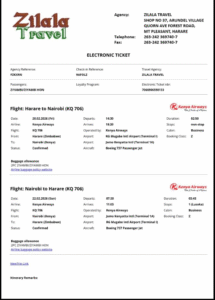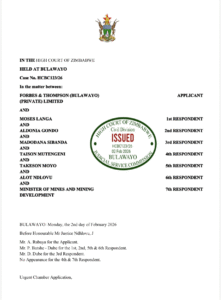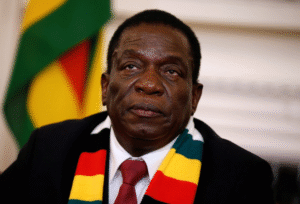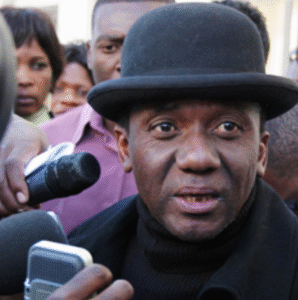HUMAN RIGHTS ACTIVIST ARRESTED FOR A CRIME SHE COULDN’T HAVE COMMITTED

In a world where justice is meant to protect the innocent, sometimes people are arrested or even convicted for crimes they did not commit. This is a serious injustice that can happen for many reasons. Wrongful identification of the accused, false testimony, contaminated evidence, prosecutorial misconduct, inadequate defense, and circumstantial evidence are just a few examples. In some cases, investigators or prosecutors might focus on a single suspect, ignoring other leads, which is called confirmation bias. When this happens, the real truth is often overlooked, leading to innocent people suffering for crimes they never committed.
A recent case in Zimbabwe has shocked many people who care about justice and human rights. Namatai Kwekweza, a well-known human rights activist, was arrested on 1 August at Robert Gabriel Mugabe International Airport in Harare. She was taken from a flight that was headed to Victoria Falls. Kwekweza has been an outspoken advocate for human rights in Zimbabwe and has faced police repression before. Her work has been recognized internationally, and she was the first winner of the Kofi Annan NextGen Democracy Prize in 2023.
Kwekweza was not alone when she was arrested. Three other pro-democracy activists, Robson Chere, Samuel Gwenzi, and Vusumuzi Moyo, were also taken off the flight. They were accused of participating in protests that demanded the release of opposition leader Jameson Timba and 78 others. The state claims that these protests caused public disorder near the court. Timba and others had been arrested earlier for holding a Youth Day commemoration on 16 June in Avondale, Harare. As the Southern African Development Community summit approaches, which is politically important for President Emmerson Mnangagwa, there has been a crackdown on civil society and opposition activists. This has led to increased arrests and repression of those who speak out against the government.
One of the activists, Robson Chere, was reportedly tortured after his arrest. There are concerns that he may have suffered kidney damage due to the abuse. Chere and the other activists are now being charged under a section of the Criminal Law (Codification and Reform) Act. The state argues that Kwekweza and the others disrupted public peace by protesting at the magistrate’s court on 27 June. However, there is a major flaw in the state’s case against Kwekweza.
Travel records reveal that Kwekweza was not even in Zimbabwe on the day of the alleged crime. She had left Harare on 23 June 2024 on an Airlink flight to South Africa and did not return until 28 June 2024 on a Fastjet flight. This means she was not in the country when the protests took place. It is impossible for her to have been at two different places at the same time, in two different countries no less. Such a situation could only happen in the realm of quantum physics, not in the real world.
The consequences of Kwekweza’s wrongful arrest have been severe. She has lost her freedom and suffered physical pain, emotional trauma, and financial burdens. Her reputation has been damaged, and her relationships have been strained. The presumption of innocence is a basic principle of the rule of law, meaning that a person is considered innocent until proven guilty. But in Zimbabwe, it seems to work the other way around. People are treated as guilty until they can prove their innocence, as seen in the recent case of Job Sikhala, a high-profile opposition figure.
Kwekweza’s case is a dramatic example of how justice can be twisted and how innocent people can suffer as a result. It is a reminder that the fight for human rights and justice is far from over, and that those who stand up for these principles often face great personal risk.





